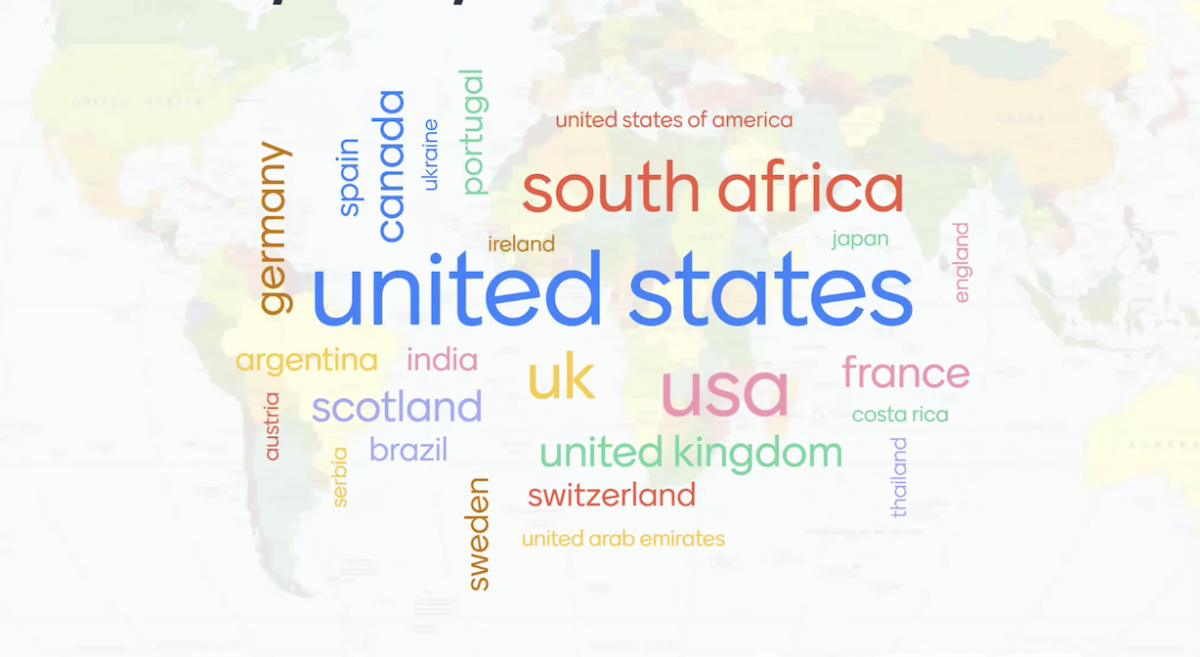At the Open Repositories 2020 virtual conference in June, FAIRsFAIR offered an interactive workshop centred around a recently published report entitled. FAIRsFAIR's Transition Support Programme for Repositories. In this article, conference speaker Patricia Herterich of FAIRsFAIR partner organisation Digital Curation Centre documents her experience speaking to 215 attendees from around the world and highlights key recommendations from the report.

We started the workshop by getting an idea of our audience, which was very international with participants from all across the globe.
Using Mentimeter we were able to guage that 82% of the attendees worked for institutional repositories. Of great relevance for any technical implementations FAIRsFAIR might develop, we discovered that the most used repository platform was DSpace (49%). We were also heartened to find that most participants were and are already very active in supporting research data management and FAIR data provision with a majority routinely:
- assigning persistent identifiers
- supporting researchers with data management plans (DMPs)
- curating the metadata of deposited datasets
- sharing their own training materials
While they are familiar with the FAIR principles and ready to offer support, many reported feeling that there is a lack of FAIR awareness amongst repository users.
FAIRsFAIR's Transition Support Programme for Repositories
The bulk of the workshop was dedicated to presenting our new report FAIRsFAIR's Transition Support Programme for Repositories. This report is currently open for comments from the community. These comments are extremely important and will inform all-important refinements to the draft recommendations - to be published definitively later on this year. Feedback may be given until 21 August 2020.
In its current format, the report presents ten actions repository managers can perform in order to enable FAIR data:
-
Improve the findability of your repository and its related policies so end users are aware of what you offer
-
Improve the interoperability potential of your repository content by becoming a FAIR Data Point
-
To support the availability of more FAIR data for reuse, check if your repository is enabling FAIR data
-
Increase the amount of FAIR data your repository holds through automatic assessment and by improving researchers’ awareness of how to make their data FAIR
-
Support depositors in providing clearer access descriptions by harmonising metadata relating to data accessibility
-
Improve the visibility of your repository and the data you hold through the use of Persistent Identifiers
-
Optimise the potential to receive FAIRer data from depositors by supporting machine-actionable Data Management Plan workflows
-
Invest in professional staff development to ensure that your service meets evolving end-user needs and remains competitive
-
Support better shared understanding of the costs of keeping data FAIR over time
-
Benefit from engaging with the European Group of FAIR Champions network
During the discussion session following the presentation of the recommendations, it emerged that the majority of attendees consider CoreTrustSeal certification to be very difficult to achieve. Attendees also expressed an urgent need for more guidance on preservation, file formats, certification options other than CoreTrustSeal, and case studies from the digital humanities. Finally it was suggested that technical guidance material directly aimed at repository developers be provided, and that key resources be made available in languages other than English.
We’d like to thank all attendees for their input. The discussion at the workshop was incredibly helpful in further refining the draft transition support programme document and we appreciate the input from the international community. The report FAIRsFAIR's Transition Support Programme for Repositories is accessible in ZENODO here and a working version is available here. Please share your feedback with us before August 21, 2020 using the ‘Suggesting’ mode in the working version.
Click here to access a recording of the session.
Click here to download the slide presentation.
